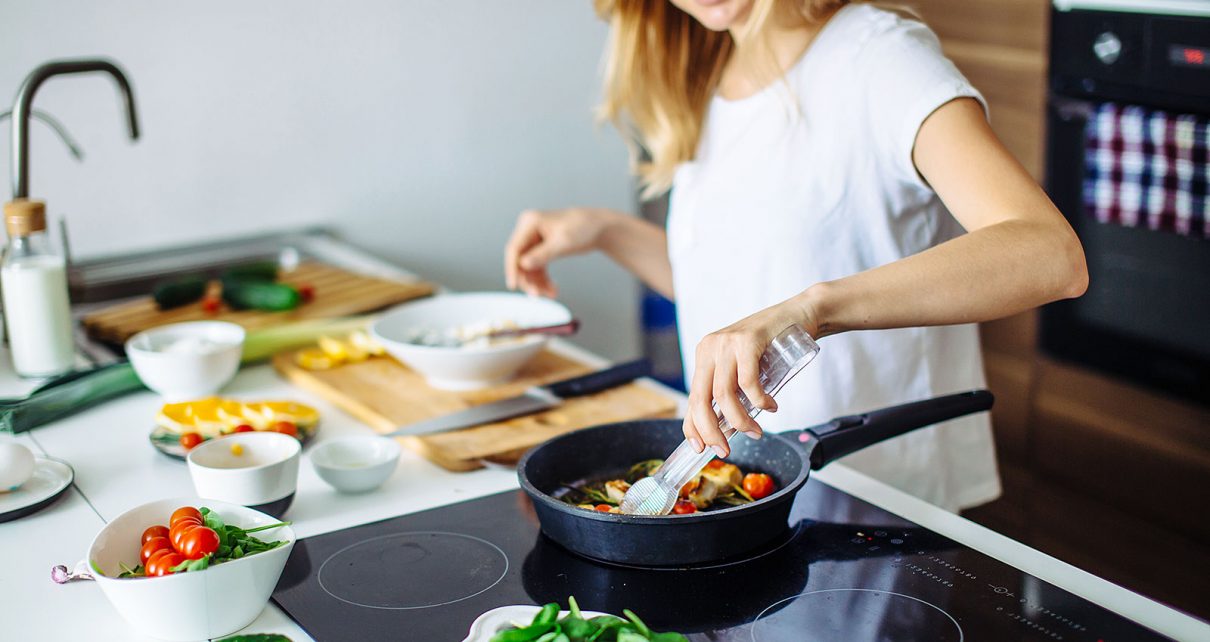There’s nothing beats a home-cooked food, right? It just appears to be more flavorful and as pleasing. And let’s not forget the reality preparing dishes at home will save you money.
Yet dinner at home serves up what’s probably a far more vital gain: Home-prepared dishes tend to be healthier than restaurant dishes.
Visit: https://njaminjami.si/ for more details
Here are just five morsels of evidence indicating why eating in surpasses dining away.
1. Baking at home plays a part in healthier diets.
A study published earlier this season in the American Journal of Preventive Drugs found that individuals scored better on the Healthy Eating Index when they cooked at home.
The study, by researchers at Oregon Status School and the University of Washington, viewed a week’s worth of cooking and eating habits among more than 400 adults in the Seattle area, according for an Oregon Point out news release.
In homes where residents cooked at home three times per week, the common score on the Healthy Eating Index was about 67. For individuals who cooked at home six times weekly, the average credit score rose to about 74. Scores on the index range between zero to 100. A credit score over 81 suggests a healthy diet, 51 to 80 implies the dietary plan needs improvement and 50 or lower is known as poor.
2. Cooking at home reduces consumption of calories.
When people frequently fix dishes at home, they consume fewer carbohydrates, less sugar and less fat than those who prepare food at home irregularly or not at all, according to a report published in 2014 in the journal Public Health Diet.
In examining four many years of data from a national health and nutrition survey, researchers learned that on an average day, the 8 percent of adults who cooked dinner once weekly or never cooked evening meal consumed 2,301 calories, 84 grams of fat and 135 grams of sugar – all above ideal levels. That’s according to a new release from the Johns Hopkins Bloomberg Institution of Open public Health.
Meanwhile, the nearly 50 percent of adults who cooked evening meal six to eight times a week consumed 2,164 calories, 81 grams of excess fat and 119 grams of sugar on an average day, based on the analysis. That’s still high, but it’s much better than the group who hardly cooked at home.
3. Baking at home helps you to save money.
A 2013 experiment by the Boston Earth discovered that a home-prepared meal for just two cost $11.84 per person, as the same meal at a string restaurant was more than two times that -$23.84.
4. Baking at home gives us more control.
While you fix meals at home, you’ve got control over salt, excess fat, portion size and other the different parts of breakfast time, lunch and dinner, registered dietitian and holistic nutritionist Meg Hagar says. In comparison, a few of that control can slip away when you take in out.
“Anyone can reap the benefits of having more control over how our food is manufactured and portioned, but consuming food from your home may be particularly ideal for anyone those trying to lose weight, with food allergies, or carrying out a special diet thanks to medical conditions,” Hagar says.
To create it much easier to prepare food at home, Hagar recommends keeping plenty of plastic containers on hand to store leftovers, purchasing a slower cooker to ease the cooking-at-home burden, and packing a lunchbox or meal bag which means you can avoid eating out during the workday.



